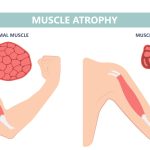Common Symptoms of a Bad Diet and How to Fix Them
Diets are often used to achieve health and fitness goals, but not all diets are created equal. While some diets may help you lose weight and feel better, others can have harmful side effects that negatively affect your health in the long run. It’s important to recognize the warning signs of a bad diet early on before they cause more serious issues. In this article, we will explore the common symptoms of a bad diet, why they happen, and how to correct them to support your health and well-being.
Symptoms of a Bad Diet: Warning Signs You Shouldn’t Ignore
While some changes in your body are normal when starting a new diet, certain symptoms can indicate that your diet is causing harm. Below are the most common symptoms of a bad diet:
- Constant Fatigue or Low Energy from a Poor Diet
If you feel sluggish, constantly tired, or have difficulty focusing, your diet might be lacking essential nutrients. Extreme calorie restriction or cutting out entire food groups can lead to energy depletion, leaving you feeling drained.
Fix It: A balanced diet with nutrient-dense foods like fruits, vegetables, lean proteins, and whole grains can help boost energy levels.
Learn more about energy-boosting foods.
- Hair Loss and Brittle Nails Caused by Nutrient Deficiencies in Your Diet
Nutrient deficiencies caused by an unbalanced diet can lead to hair thinning, hair loss, or brittle nails. If your diet lacks essential vitamins like biotin, iron, or zinc, it can negatively impact the health of your hair and nails.
Fix It: Include nutrient-rich foods such as eggs, spinach, and nuts to improve hair and nail health.
Read about nutrients for healthy hair and nails.
- Digestive Problems Linked to a Bad Diet
Bloating, constipation, diarrhea, or stomach cramps are all signs that your diet is upsetting your digestive system. Lack of fiber, dehydration, or drastic changes in food intake can disrupt digestion and cause discomfort.
Fix It: A diet rich in fiber, hydration, and probiotics (like yogurt or kefir) can help regulate digestion and reduce bloating.
Discover tips for improving digestion.
- Mood Swings and Irritability Due to a Poor Diet
Mood swings, anxiety, or irritability can occur when your diet is lacking in key nutrients. Dramatic changes in your eating habits or eliminating important food groups, such as carbohydrates, can impact your hormone levels and brain function.
Fix It: Include foods like whole grains, lean proteins, and healthy fats in your diet to help regulate mood and keep energy levels stable.
Find out how nutrition affects mood.
- Intense Cravings and Overeating Triggered by a Bad Diet
Intense cravings, particularly for sugary or high-fat foods, are often a sign that your diet is unbalanced. If your body isn’t receiving the proper nutrients, it may trigger cravings that lead to overeating or binging.
Fix It: A balanced diet with sufficient fiber, healthy fats, and proteins can help control cravings.
Learn how to manage food cravings.
- Weakened Immune System Due to Nutrient Gaps in Your Diet
If you’re getting sick more frequently, your diet could be affecting your immune system. A lack of vitamins like vitamin C, vitamin D, and zinc can weaken your body’s ability to fight infections.
Fix It: Eat immune-boosting foods like citrus fruits, leafy greens, and lean meats to strengthen your immune system.
Explore foods that help strengthen your immune system.
- Sleep Disruptions Caused by a Poor Diet
A bad diet that is low in essential nutrients or severely restricts calories can interfere with your sleep quality. Poor sleep, in turn, can affect your health and hinder your fitness progress.
Fix It: Eating nutrient-dense foods and avoiding stimulants like caffeine can help improve sleep quality.
Learn about foods that promote better sleep.
Why These Symptoms Happen: Understanding the Effects of a Bad Diet
Many of these symptoms arise from nutrient deficiencies, dehydration, or excessive calorie restriction. When you follow a restrictive diet or eliminate whole food groups, your body may not get the nutrients it needs to function properly. This can lead to fatigue, digestive issues, mood swings, and other symptoms. A bad diet can also stress your body, making it harder to achieve your fitness and weight loss goals.
How to Avoid Harmful Diets: Tips for a Healthy and Sustainable Diet
To prevent the negative effects of a bad diet, it’s crucial to focus on balanced and sustainable nutrition. Here are some tips to help you improve your diet and support your overall health:
- Focus on Whole, Nutrient-Dense Foods for Better Health
A well-balanced diet should include a variety of whole, unprocessed foods that provide your body with the nutrients it needs. These include fruits, vegetables, lean proteins, whole grains, and healthy fats.
Fix It: Prioritize whole foods and avoid processed or sugary foods that can throw your diet off balance.
Learn more about whole food nutrition.
- Avoid Extreme Calorie Restriction to Maintain a Balanced Diet
Drastic calorie cutting can lead to fatigue, nutrient deficiencies, and long-term metabolic issues. Instead of drastically reducing your calorie intake, aim for a modest calorie deficit that supports healthy and sustainable weight loss.
Fix It: Focus on creating a slight calorie deficit through portion control and mindful eating.
Explore healthy ways to reduce calorie intake.
- Stay Hydrated to Support Your Body on a Healthy Diet
Drinking enough water is essential for digestion, energy, and overall health. Dehydration can worsen symptoms of a bad diet, such as fatigue and digestive issues.
Fix It: Make sure to drink at least 8 cups of water a day to stay hydrated and support your body’s functions.
Find out how hydration affects your health.
- Listen to Your Body and Make Adjustments to Your Diet
Pay close attention to how your body reacts to your diet. If you feel constantly hungry, fatigued, or experience negative symptoms, it may be time to reassess your approach.
Fix It: Be flexible with your diet and make adjustments as needed to ensure it is meeting your nutritional needs.
Learn how to practice mindful eating.
- Consult a Professional to Ensure Your Diet Supports Your Health
If you’re experiencing concerning symptoms or are unsure about the diet you’re following, consult a registered dietitian or healthcare provider. They can help you develop a diet plan tailored to your needs and goals, ensuring you meet your nutritional needs without compromising your health.
Fix It: Work with a professional to create a personalized diet plan that supports your health and wellness.
Find a registered dietitian near you.
Conclusion: How to Avoid a Bad Diet and Improve Your Health
A bad diet can have numerous negative effects on your health, from digestive issues and fatigue to mood swings and a weakened immune system. By recognizing the signs of a bad diet and making adjustments to improve your nutritional intake, you can support your health and reach your fitness goals in a safe and sustainable way. Remember, a well-balanced diet is key to long-term success!



